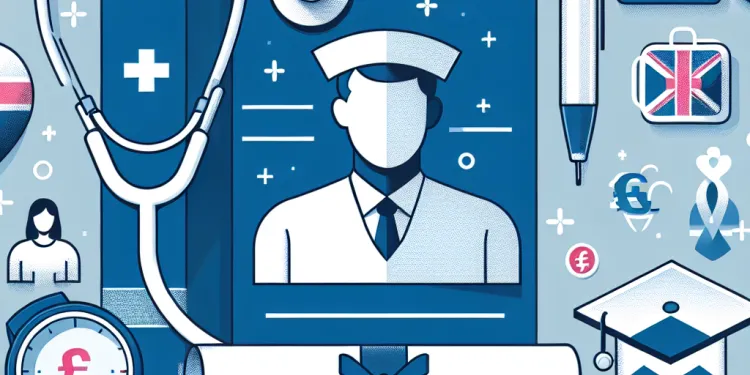
Find Help
More Items From Ergsy search
-
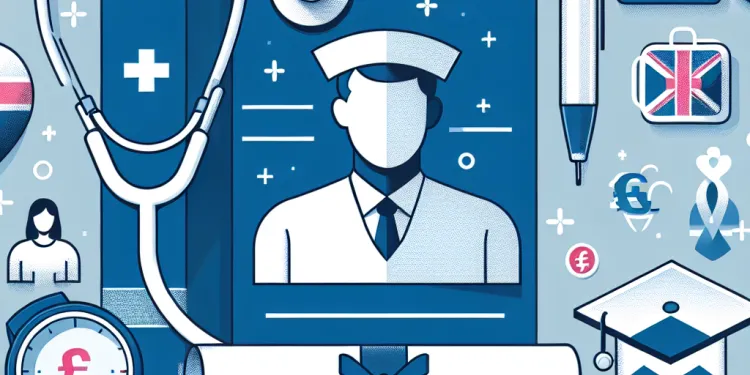
Can I become a nurse in the NHS with a nursing diploma?
Relevance: 100%
-

How can I become an NHS Nurse in the UK?
Relevance: 66%
-

What GCSEs or A-Levels do I need to become a nurse?
Relevance: 65%
-

What are the basic educational requirements to become an NHS nurse?
Relevance: 62%
-

What types of nursing degrees can I pursue?
Relevance: 60%
-

How long does it take to become an NHS nurse?
Relevance: 59%
-

Can I become an NHS nurse if I have international nursing qualifications?
Relevance: 58%
-
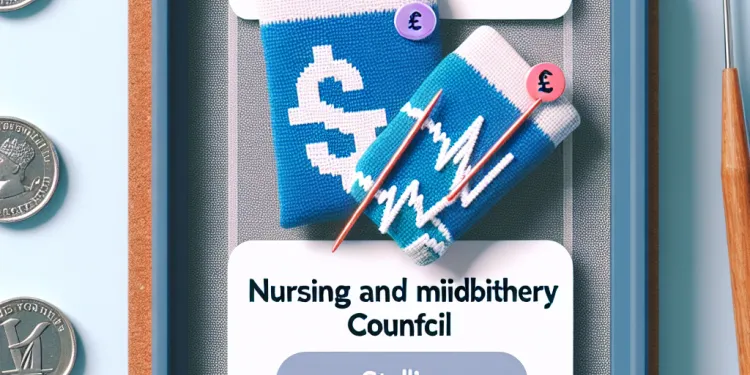
Do I need to be registered with the Nursing and Midwifery Council (NMC) to work as an NHS nurse?
Relevance: 57%
-

Is there a minimum age requirement to start nurse training?
Relevance: 55%
-

Is it possible to study nursing part-time?
Relevance: 55%
-

What support systems are available to NHS nurses for continuing professional development?
Relevance: 55%
-

The role of residential and nursing homes
Relevance: 55%
-

The role of residential & nursing homes
Relevance: 54%
-

What skills are important for a career in nursing?
Relevance: 54%
-

What is the process for applying to a nursing degree course?
Relevance: 54%
-

What are the career progression opportunities for NHS nurses?
Relevance: 52%
-

Are there any apprenticeship routes to becoming an NHS nurse?
Relevance: 52%
-

What funding options are available for nursing students in the UK?
Relevance: 51%
-

How do I choose a good nursing home?
Relevance: 51%
-

How are care homes different from nursing homes?
Relevance: 50%
-

How important is work experience for entering a nursing program?
Relevance: 50%
-

Is live-in care an alternative to nursing homes?
Relevance: 47%
-

Will I still have access to doctors and nurses on a virtual ward?
Relevance: 44%
-

Can I specialize in a certain area of nursing with the NHS?
Relevance: 42%
-
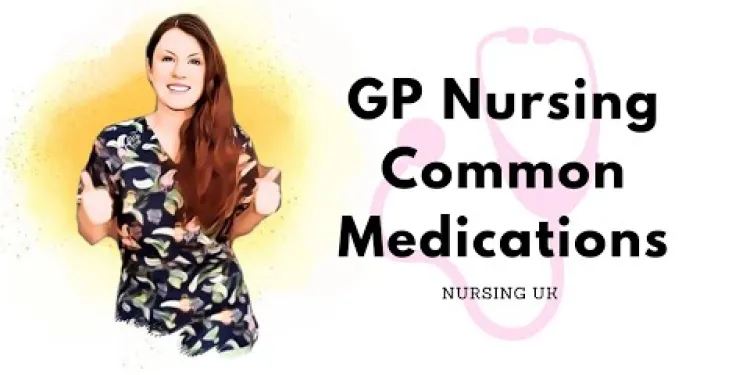
GP Nursing Most Common Medications UK.
Relevance: 41%
-

How physically demanding is a career in NHS nursing?
Relevance: 37%
-

South London Arrhythmia Nurses Forum (16 June 2022)
Relevance: 33%
-

What qualifications do care home staff have?
Relevance: 33%
-

Can I attend open days to learn more about nursing programs in the UK?
Relevance: 32%
-

Are there different types of care homes?
Relevance: 24%
-

How do I choose a good bursing home
Relevance: 24%
-

Do care homes provide medical care?
Relevance: 23%
-

What is the role of a healthcare assistant on the path to becoming a nurse?
Relevance: 23%
-

Who can administer Botox?
Relevance: 23%
-

What are Care Homes?
Relevance: 19%
-

Does live-in care include medical services?
Relevance: 19%
-

How can seniors access long-term care support?
Relevance: 18%
-

Are there academic courses for aspiring primary care support workers?
Relevance: 17%
-

What support is available for people with stoma bags?
Relevance: 16%
-
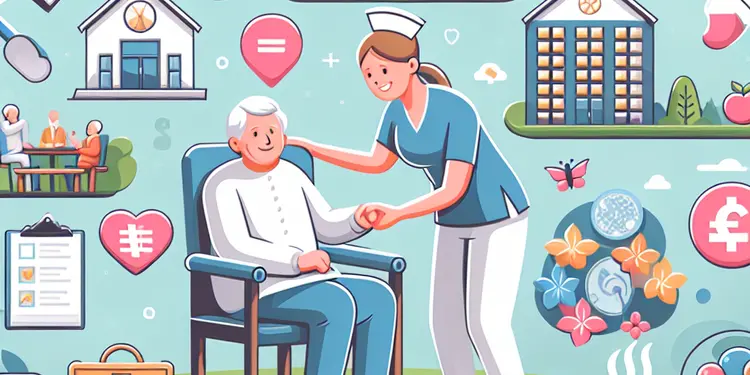
What services do care homes provide?
Relevance: 16%
Introduction
Working as a nurse within the National Health Service (NHS) in the United Kingdom is a rewarding career choice that offers numerous opportunities to make a positive impact on people's lives. If you have a nursing diploma, you may wonder whether you can work as a nurse within the NHS. This article explores the requirements and prospects for diploma holders aiming to pursue a nursing career in the NHS.
Nursing Diploma Overview
A nursing diploma traditionally referred to qualifications obtained through nursing school programs that focused more on practical skills than theoretical knowledge. Historically, diploma programs were offered by hospitals and emphasized hands-on experience. However, educational standards for nurses have evolved, and the role of a diploma in nursing has consequently changed across healthcare systems, including in the UK.
Nursing Education Standards in the UK
In the UK, nursing education requirements have shifted significantly towards higher education. The Nursing and Midwifery Council (NMC) in the UK now requires registered nurses to have at least a Bachelor of Science degree in Nursing (BSc Nursing). This change ensures that nurses have the critical thinking and research skills necessary to provide high-quality care. Diploma qualifications, however, might not meet the current entry requirements for new nurses wishing to register with the NMC.
Pathways for Diploma Holders
If you hold a nursing diploma and wish to work as a registered nurse within the NHS, you may need to undertake additional educational steps. One common pathway is enrolling in a nursing degree program that builds upon prior learning and experience. Many universities offer accelerated or bridging programs specifically designed for diploma holders, allowing them to obtain a degree and meet NMC registration standards.
Becoming a Registered Nurse
The first step towards becoming a registered nurse in the NHS with a nursing diploma is to assess your current qualifications compared to NMC requirements. If additional education is needed, researching university programs that offer diploma-to-degree conversion courses is essential. Upon completion of a bridging program and obtaining a BSc in Nursing, you can apply for NMC registration.
Benefits of Upgrading Your Qualifications
Upgrading from a diploma to a degree not only fulfills the educational requirements to work in the NHS but also enhances career prospects. Degree-qualified nurses often have access to more diverse roles and advancement opportunities within the NHS, coupled with potential for specialization in various fields of nursing. Additionally, the transition to degree-level education supports nurses in developing advanced competencies essential for modern healthcare delivery.
Conclusion
While a nursing diploma alone may not suffice for a role as a registered nurse in the NHS today, there are clear pathways for diploma holders to upgrade their qualifications to meet current professional standards. By taking advantage of bridging programs and pursuing a nursing degree, you can position yourself to join the NHS and contribute to the well-being of patients across the UK.
Introduction
Working as a nurse for the National Health Service (NHS) in the United Kingdom is a good job. Nurses help people feel better. If you have a nursing diploma, you might wonder if you can work in the NHS. This article will help you understand what you need to do if you have a diploma and want to be a nurse in the NHS.
Nursing Diploma Overview
A nursing diploma is something you get from a nursing school. It teaches you how to take care of patients. A long time ago, hospitals gave these diplomas. They focused on hands-on work. Now, nursing education has changed in the UK. Diplomas are different than they used to be.
Nursing Education Standards in the UK
In the UK, nurses need more education now. To be a nurse, you must have a Bachelor of Science degree in Nursing (BSc Nursing). This rule is from the Nursing and Midwifery Council (NMC). Education has changed to make sure nurses can think critically and help patients well. Having just a diploma might not be enough to become a nurse now.
Pathways for Diploma Holders
If you have a nursing diploma and want to work as a registered nurse in the NHS, you might need more schooling. One way to do this is by getting a nursing degree. Some universities offer special courses for diploma holders. These courses help you get a degree and meet the NMC standards.
Becoming a Registered Nurse
To become a registered nurse in the NHS with a diploma, check what your current diploma offers compared to what the NMC needs. If you need more education, look for universities that offer courses to turn your diploma into a degree. When you finish these courses and get your BSc in Nursing, you can apply to be an NMC registered nurse.
Benefits of Upgrading Your Qualifications
Getting a degree instead of just a diploma is important. It helps you meet the requirements to work in the NHS. Nurses with a degree can do different kinds of jobs and have more opportunities for moving up. You could specialize in different areas of nursing. Higher education also helps you become a better nurse, which is good for the patients you will care for.
Conclusion
Having a nursing diploma alone is not enough to be a registered nurse in the NHS today. But there are ways to improve your qualifications. By taking special courses to get a degree, you can meet the standards needed. This helps you get ready to work in the NHS and help patients in the UK.
Frequently Asked Questions
Can I work as a nurse in the NHS with a nursing diploma?
Yes, it is possible to work as a nurse in the NHS with a nursing diploma, but you must meet the registration requirements of the Nursing and Midwifery Council (NMC).
What is the NMC, and why is it important?
The Nursing and Midwifery Council (NMC) is the regulatory body for nurses and midwives in the UK. Registration with the NMC is mandatory to practice as a nurse in the NHS.
Can foreign-trained nurses with a diploma work in the NHS?
Yes, foreign-trained nurses can work in the NHS, but they need to have their qualifications assessed and meet the NMC's registration standards.
What are the language requirements for foreign-trained nurses?
Foreign-trained nurses must prove proficiency in English, usually through exams like the IELTS or OET, as part of the NMC registration process.
Do I need to convert my nursing diploma to a degree to work in the NHS?
No, you do not necessarily need a degree, but you must meet the NMC's standards and may need to complete additional training or assessments.
Is there a specific pathway for diploma holders to enter the NHS?
Yes, the NMC provides pathways such as adaptation programs or the Test of Competence for overseas nurses.
What is the Test of Competence?
The Test of Competence assesses if an overseas nurse meets UK standards of proficiency and includes a computer-based test and an Objective Structured Clinical Examination (OSCE).
Will I need to undertake further education once employed in the NHS?
It depends on your role and the requirements set by the NHS trust, but ongoing professional development is encouraged.
How can I verify if my diploma is eligible for NMC registration?
You can check the NMC website for guidance and contact them for specific queries about international qualifications.
What documents are required for NMC registration?
You need to provide proof of identity, qualification certificates, language proficiency proof, and evidence of good health and character.
Are there any adaptation programs for diploma nurses in the NHS?
Yes, adaptation programs or supervised practice can be part of the NMC's process for overseas diploma holders to ensure they meet UK standards.
How long does the NMC registration process usually take?
The process can vary but typically takes a few months, depending on the completeness of your application and meeting all criteria.
What is the cost involved in NMC registration?
Fees include application assessment fees, test of competence fees, and an annual registration fee. These are detailed on the NMC website.
Do I need work experience to qualify for an NHS nursing position?
Experience is beneficial and might be required for certain roles, but new nurses might find entry-level positions available.
Can I specialize in a nursing field in the NHS with a diploma?
Specialization is possible with further training and experience, which is often encouraged within the NHS structure.
Will my salary be affected by having a diploma instead of a degree?
NHS salaries are based on roles and experience rather than just qualifications; however, career progression might be influenced by additional qualifications.
Does the NHS provide assistance for obtaining NMC registration?
Some NHS trusts offer support and guidance for international recruits, including assistance with the registration process.
Are there any age restrictions for becoming a nurse in the NHS?
There are no upper age limits, but you must be at least 18 to start a nursing training program.
What support is available for new nurses in the NHS?
The NHS provides comprehensive induction programs, mentorship, and ongoing professional development for all new staff.
How can I apply for a nursing position in the NHS?
Applications can be submitted online through the NHS Jobs website, and you must have or be in the process of obtaining NMC registration to apply.
Can I be a nurse in the NHS with a nursing diploma?
Yes, you can work as a nurse in the NHS if you have a nursing diploma. But you will need to make sure a few things are sorted first:
- Check that your diploma is approved by the Nursing and Midwifery Council (NMC).
- Make sure your English is good, as you might need to pass an English test.
- You will need to register with the NMC.
If you need help, you could:
- Talk to someone who works at your school or college.
- Use the internet to find more information.
- Ask a friend or family member to explain things to you.
Yes, you can work as a nurse in the NHS if you have a nursing diploma. But you need to follow the rules of the Nursing and Midwifery Council (NMC) to sign up as a nurse.
What is the NMC, and why is it important?
The NMC looks after nurses and midwives. They make sure they do a good job. This is important because nurses and midwives help people who are sick or having babies.
A good way to learn more is to ask questions or use simple apps that can read text out loud.
The Nursing and Midwifery Council (NMC) is a group that makes sure nurses and midwives do their jobs right in the UK. To work as a nurse in the NHS, you must sign up with the NMC.
Can nurses from other countries with a diploma work in the NHS?
Yes, nurses who trained in other countries can work in the NHS.
These nurses need to have a diploma in nursing.
They must also register with the Nursing and Midwifery Council (NMC).
Some helpful tools and tips are:
- Use simple checklists to make sure you have all the right documents.
- Ask someone to help you if you find it hard to read long documents.
- Watch videos about how to register with the NMC.
Yes, nurses who trained in other countries can work in the NHS. They need to have their qualifications checked and meet the rules of the NMC to register.
What language skills do nurses from other countries need?
Nurses who studied in other countries need to show they can speak English well. They usually do this by taking tests like IELTS or OET. This is an important step to register with the NMC.
Do I need to change my nursing diploma to a degree to work for the NHS?
If you want to work as a nurse for the NHS, you might wonder if your diploma is enough. Sometimes, the NHS needs nurses to have a degree.
Here are something you can do to help you:
- Ask someone who works at the NHS. They can give you the right answer.
- Look for information on NHS websites. They often explain what you need.
- Use tools to help you read. For example, read out loud or have someone read to you.
No, you do not always need a degree. But you must meet the rules of the NMC. You might need to do some extra training or tests.
Can people with diplomas work in the NHS?
Do you have a diploma and want to work in the NHS? There might be special ways for you to join!
Here's what you can do:
- Ask for help: Talk to someone who knows about NHS jobs. They can guide you.
- Use tools: Look online for NHS job websites. They have lots of information.
- Check courses: Find out if the NHS offers special courses for diploma holders.
Remember, you can always find someone to help you understand more.
Yes, the NMC helps nurses from other countries. They offer special programs to help, like adaptation programs or the Test of Competence.
What is the Test of Competence?
The Test of Competence checks if you have the right skills for a job. It sees if you can do the job well.
If you find reading hard, you can use tools to help:
- Text-to-Speech: This tool reads the words out loud.
- Picture Guides: Use pictures to help understand words better.
The Test of Competence checks if nurses from other countries have the skills needed to work in the UK. It has two parts: a computer test and a special practical test called OSCE.
Will I need to do more learning when I have a job in the NHS?
When you work in the NHS, you might need to learn new things. This is because many NHS jobs want you to keep up to date with new skills and information.
Here are some ways you might continue learning:
- Go to training sessions or workshops.
- Take part in online courses.
- Read new information about your job.
- Talk to other people at work to learn from them.
Using a calendar or planner can help you remember when you have learning activities. It might also help to use apps or websites that make learning fun and easy.
What you do can change what you need to learn. The NHS trust might tell you what you have to do. But everyone is told to keep learning new things all the time.
How do I check if my diploma works for NMC registration?
You can go to the NMC website to find help. If you have questions about qualifications from other countries, you can ask them directly.
What papers do you need for NMC registration?
To sign up with the NMC, you need some important papers. Let’s make it easy:
- You need a certificate to show your qualifications. This tells the NMC you have the right skills.
- You need proof of your identity, like a passport. This shows who you are.
- You might need a certificate about your English skills. This shows you can understand and speak English.
- You also need a good health certificate from a doctor. This shows you are healthy enough to work.
- Have a police check paper. This shows you are safe to work with others.
Here are some helpful tools:
- Ask a friend or family member to help you read the papers.
- Use a highlighter pen to mark important things.
- Make a checklist to keep track of your papers.
- Use simple words when asking questions.
You need to show who you are, your school certificates, proof you speak the language, and proof you are healthy and a good person.
Do diploma nurses have programs to help them in the NHS?
If you have a diploma in nursing, you might be wondering if there are programs in the NHS to help you adjust and learn. These programs can make it easier to start working in the NHS.
Some tools that might help understand more about these programs include talking with a mentor, using online videos, or reading simple brochures. These can give you support and make things clearer.
Yes, there are programs and practice times to help people from other countries learn how to work in the UK. These help make sure they do things the UK way.
How long does it take to register with the NMC?
The process can take a few months. It depends on how complete your application is and if you meet all the rules.
How much money do you need to pay for NMC registration?
You have to pay for a few things. You will pay to have your application checked, to take a test, and to be registered each year. You can find more about these fees on the NMC website.
Do I need to have worked before to get a job as a nurse in the NHS?
To work as a nurse in the NHS, you need to study at university and get a degree. You do not need to have worked as a nurse before, but any experience in caring for people is helpful.
You can get experience by volunteering or working in places like hospitals, care homes, or with charities. This can show that you like helping people and understand what caring for others is like.
If you find reading hard, you can ask someone you trust to help you understand this information. There are also apps and websites that can read text out loud for you.
Having experience can be helpful and might be needed for some jobs. But new nurses can still find jobs that don't need a lot of experience.
Can I focus on one type of nursing in the NHS with a diploma?
You can get special skills with more training and practice. The NHS encourages you to do this.
Will my pay change if I have a diploma and not a degree?
NHS pay is based on what job you do and how much experience you have. Getting more qualifications can help you move up in your career.
Can the NHS help me get NMC registration?
Some NHS Trusts help people moving from other countries. They give advice and support. They also help with signing up for work.
Can anyone of any age work as a nurse in the NHS?
You can start training to be a nurse at any age! But you have to be old enough to start some courses. If you are unsure or need help, you can ask a teacher or use a website to check what you need. Good luck! 😊
You can start learning to be a nurse at any age, but you must be at least 18 years old to begin.
What help can new nurses get in the NHS?
Here is how the NHS can help new nurses:
- Mentors: New nurses can have a mentor. A mentor is someone who helps you learn your job.
- Training: New nurses get training. This helps them learn how to care for patients.
- Groups: New nurses can join groups. In these groups, they can talk to other nurses and share tips.
- Online Tools: There are websites and videos that can help new nurses learn more.
- Meetings: New nurses can go to meetings to learn and ask questions.
The NHS helps new staff in many ways. They have special programs to teach you about your new job. They give you a mentor, which is someone who can help you and answer your questions. They also help you keep learning new things while you work.
How do I get a nursing job in the NHS?
Do you want to be a nurse in the NHS? Here's how you can try to get a job:
- Check the NHS Jobs website to find nursing jobs.
- Make sure you have the right qualifications and skills.
- Fill in the job application form carefully.
- Ask someone to help you check your application.
- Prepare for the interview by practicing questions.
Remember, you can ask for help. A teacher or a friend can support you.
You can apply online on the NHS Jobs website. You need to have NMC registration or be getting it soon to apply.
Useful Links
Have you found an error, or do you have a link or some information you would like to share? Please let us know using the form below.
-->
This website offers general information and is not a substitute for professional advice.
Always seek guidance from qualified professionals.
If you have any medical concerns or need urgent help, contact a healthcare professional or emergency services immediately.
Some of this content was generated with AI assistance. We’ve done our best to keep it accurate, helpful, and human-friendly.
- Ergsy carfully checks the information in the videos we provide here.
- Videos shown by Youtube after a video has completed, have NOT been reviewed by ERGSY.
- To view, click the arrow in centre of video.
- Most of the videos you find here will have subtitles and/or closed captions available.
- You may need to turn these on, and choose your preferred language.
- Go to the video you'd like to watch.
- If closed captions (CC) are available, settings will be visible on the bottom right of the video player.
- To turn on Captions, click settings .
- To turn off Captions, click settings again.
More Items From Ergsy search
-

Can I become a nurse in the NHS with a nursing diploma?
Relevance: 100%
-

How can I become an NHS Nurse in the UK?
Relevance: 66%
-

What GCSEs or A-Levels do I need to become a nurse?
Relevance: 65%
-

What are the basic educational requirements to become an NHS nurse?
Relevance: 62%
-

What types of nursing degrees can I pursue?
Relevance: 60%
-

How long does it take to become an NHS nurse?
Relevance: 59%
-

Can I become an NHS nurse if I have international nursing qualifications?
Relevance: 58%
-

Do I need to be registered with the Nursing and Midwifery Council (NMC) to work as an NHS nurse?
Relevance: 57%
-

Is there a minimum age requirement to start nurse training?
Relevance: 55%
-

Is it possible to study nursing part-time?
Relevance: 55%
-

What support systems are available to NHS nurses for continuing professional development?
Relevance: 55%
-

The role of residential and nursing homes
Relevance: 55%
-

The role of residential & nursing homes
Relevance: 54%
-

What skills are important for a career in nursing?
Relevance: 54%
-

What is the process for applying to a nursing degree course?
Relevance: 54%
-

What are the career progression opportunities for NHS nurses?
Relevance: 52%
-

Are there any apprenticeship routes to becoming an NHS nurse?
Relevance: 52%
-

What funding options are available for nursing students in the UK?
Relevance: 51%
-

How do I choose a good nursing home?
Relevance: 51%
-

How are care homes different from nursing homes?
Relevance: 50%
-

How important is work experience for entering a nursing program?
Relevance: 50%
-

Is live-in care an alternative to nursing homes?
Relevance: 47%
-

Will I still have access to doctors and nurses on a virtual ward?
Relevance: 44%
-

Can I specialize in a certain area of nursing with the NHS?
Relevance: 42%
-

GP Nursing Most Common Medications UK.
Relevance: 41%
-

How physically demanding is a career in NHS nursing?
Relevance: 37%
-

South London Arrhythmia Nurses Forum (16 June 2022)
Relevance: 33%
-

What qualifications do care home staff have?
Relevance: 33%
-

Can I attend open days to learn more about nursing programs in the UK?
Relevance: 32%
-

Are there different types of care homes?
Relevance: 24%
-

How do I choose a good bursing home
Relevance: 24%
-

Do care homes provide medical care?
Relevance: 23%
-

What is the role of a healthcare assistant on the path to becoming a nurse?
Relevance: 23%
-

Who can administer Botox?
Relevance: 23%
-

What are Care Homes?
Relevance: 19%
-

Does live-in care include medical services?
Relevance: 19%
-

How can seniors access long-term care support?
Relevance: 18%
-

Are there academic courses for aspiring primary care support workers?
Relevance: 17%
-

What support is available for people with stoma bags?
Relevance: 16%
-

What services do care homes provide?
Relevance: 16%


